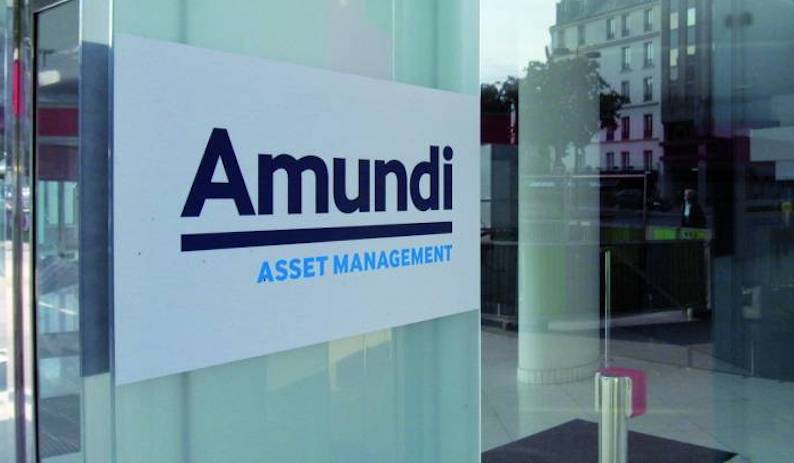Amundi’s acquisition of Lyxor could prove a “pivotal moment of consolidation” in the European ETF market, with the asset manager effectively doubling its share of the market, but it is unlikely to knock Blackrock’s iShares off its pedestal.
On Wednesday the Paris-based fund house revealed it had begun exclusive negotiations to snap up Lyxor’s €77bn (£66.3bn) ETF arm from Société Générale for a total cash consideration of €825m (£709.8m). If given the green light the deal would make Amundi one of Europe’s largest ETF providers with £122.2m in assets under management and a 14% market share.
Amundi chief executive Yves Perrier said that the acquisition “will accelerate the development of Amundi, as it will reinforce our expertise, namely in ETF and alternative asset management and allows us to welcome highly recognised teams of people”.
The company expects to see a return on investment of more than 10% in the third year after completion, including run-rate cost synergies only.
Large ETF cross-over will help generate scale
Matt Brennan, AJ Bell head of passive portfolios, believes that although the transaction may cause some short term uncertainty for investors, in the long term it would be a positive move.
He said: “Running ETFs is largely a cost game, and the larger an ETF business, the better the benefits of scale, allowing products to be priced cheaper,” adding that “having a genuine rival to Blackrock will help price competition, especially within the fixed income asset class where Blackrock has a dominant position, and price competition has been lower.”
Brennan added: “Amundi and Lyxor have a large crossover of products, so this will likely mean if the deal does go through, some of these will be merged, helping both of the providers to bring sub-scale up to scale.”
‘Pivotal moment of consolidation in the ETF industry’
Tilney managing director Jason Hollands said the deal would mark a major milestone in the European ETF industry that could inspire further M&A activity.
“It wasn’t that long ago when a number of asset managers were eager to launch their own ETF platforms but my sense is that the deal marks a pivotal moment of consolidation in the ETF industry, creating a major European ETF player.”
He added: “It would not surprise me if we saw some further consolidation as asset managers refocus on their core competencies.”
Amundi would still play second fiddle to iShares
Despite Amundi’s increased market share Peter Sleep, senior portfolio manager at Seven Investment Management, said the firm would still have a ways to catch up to Blackrock’s ETF business iShares.
“iShares will remain the dominant player in European and Global ETFs,” Sleep said. “The merger will create a new number two ETF provider in Europe but even then the combined entity will still be only 30% of the size of iShares and I am not sure it will change the competitive dynamic of ETFs in Europe.”
According to data from Morningstar iShares ended 2020 with €466.3bn of European ETF assets or 44.3% of the total market share. This was significantly ahead of the next largest player Xtrackers with €115.9bn (11% of the market) and Lyxor with €77.3bn (7.3%).
“The merger experience will be uncomfortable for those directly involved and it will be a shame to lose the Lyxor name,” Sleep added.
Transaction could take months if not years to complete
The transaction is subject to regulatory approval but is expected to be completed by February 2022. Société Générale expects to make a capital gain, net of tax, of around €430m on completion of the transaction.
But Brennan warns that “this transaction could take months if not years to complete which may mean both businesses tread water in the short term”. “It is important they do not take their eyes off the ball in terms of product innovation and product costs”.
The deal is in line with Amundi parent company Crédit Agricole group’s strategy aimed at “reinforcing its position in the asset gathering businesses” and will “further reinforce the business relationships with our historical partner Société Générale,” according to Perrier.
Amundi was formed in a merger between the asset management arms of Crédit Agricole and Société Générale in 2010, with Crédit Agricole remaining the majority shareholder.
The acquisition marks the final act of Perrier’s 11 year tenure as CEO of Amundi. The asset manager announced that he would step down on 10 May 2021 and be replaced by Valérie Baudson who was previously CEO of CPR Asset Management, Amundi’s active management company.
Société Générale chief executive Frédéric Oudéa said that Société Générale and Amundi “will remain key partners, each participating mutually in the value proposition implemented for their clients.”










